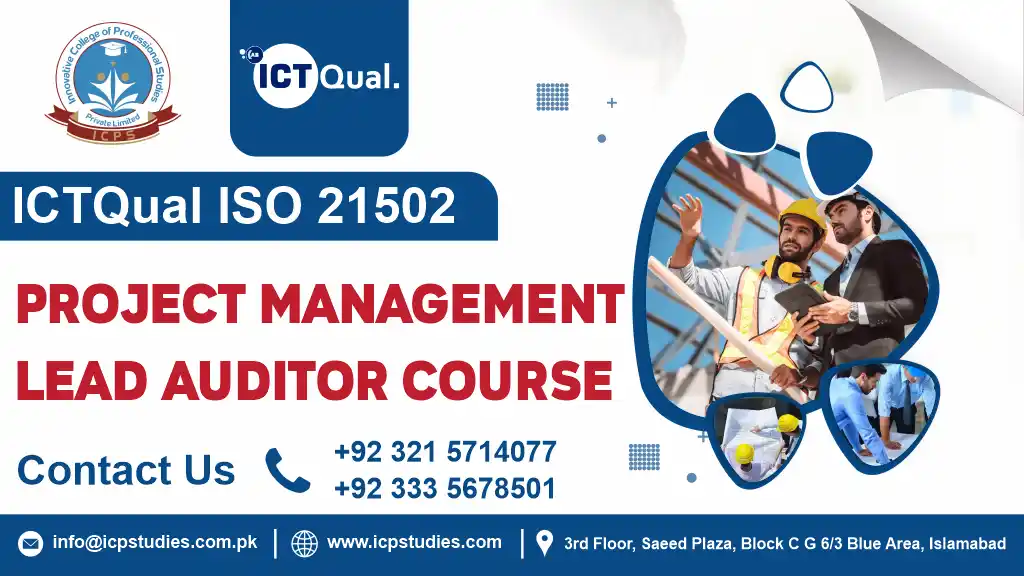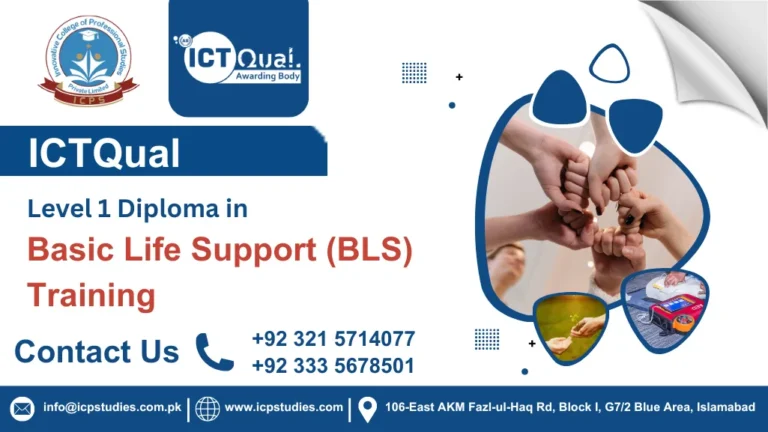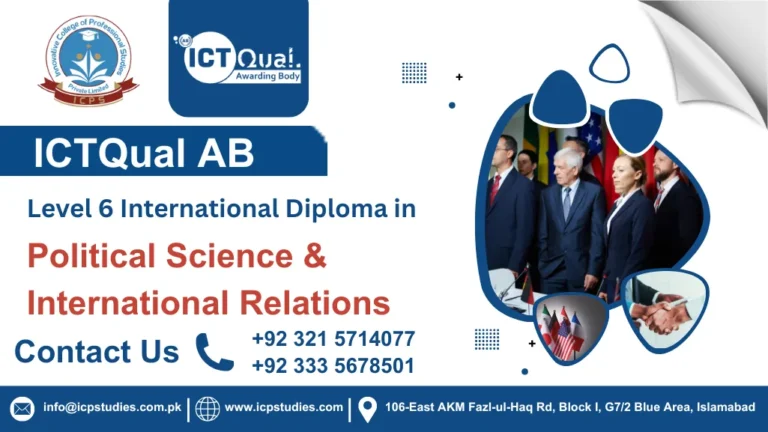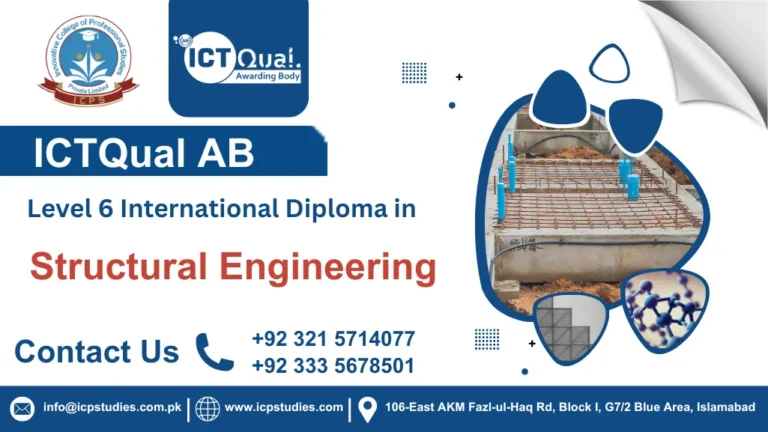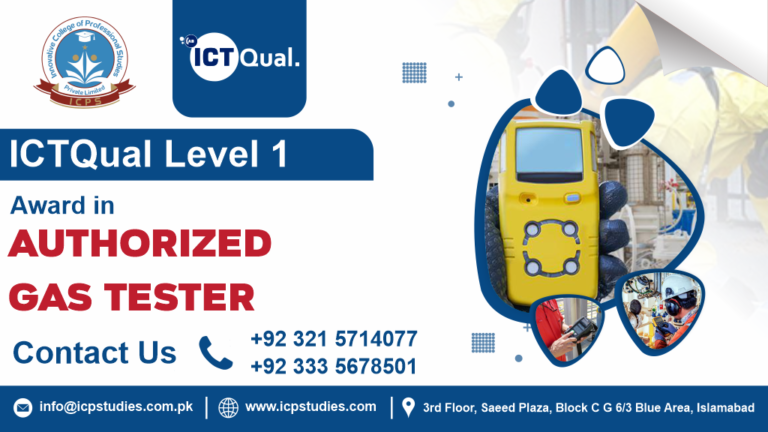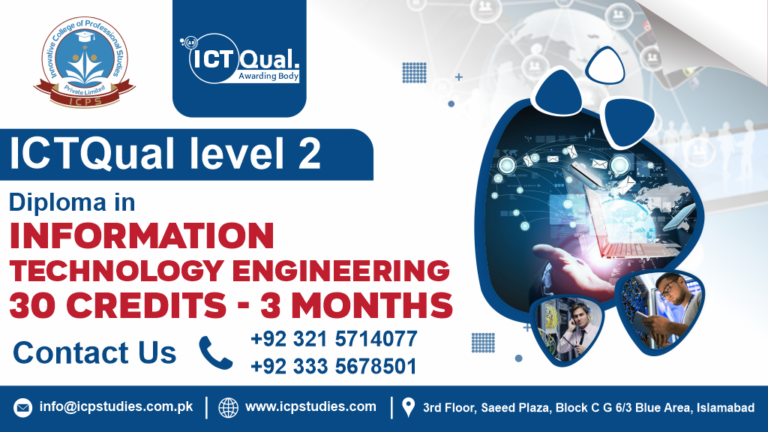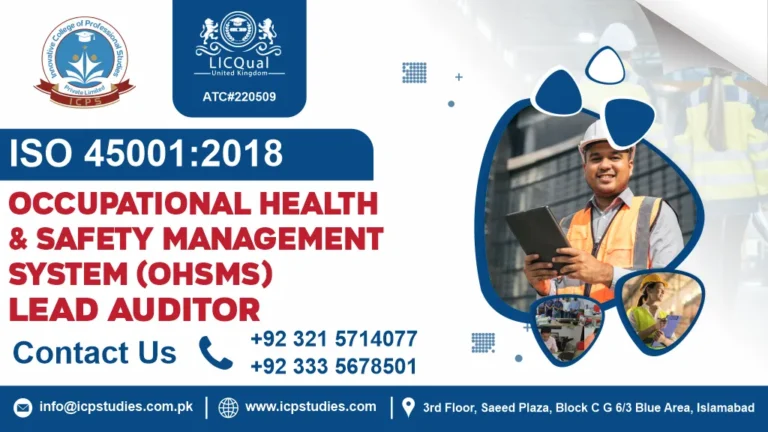In today’s rapidly evolving business environment, effective project management is more crucial than ever. Organizations are constantly seeking ways to enhance their project management practices to ensure successful outcomes and sustainable growth. One key to achieving this is through rigorous auditing and adherence to best practices. The ICTQual ISO 21502 Project Management Lead Auditor Course offers a comprehensive pathway to mastering these essential skills. Here’s a closer look at what makes this course a valuable investment for professionals in the field.
The ICTQual ISO 21502 Project Management Lead Auditor Course is a specialized training program designed for individuals who want to become proficient in auditing project management processes according to ISO 21502 standards. ISO 21502 provides guidelines for project management practices, emphasizing the need for structured methodologies to ensure project success. This course equips participants with the knowledge and skills required to assess compliance with these standards effectively and lead audits with confidence.
The ICTQual ISO 21502 Project Management Lead Auditor Course provides the knowledge, skills, and certification needed to excel in this field. By investing in this course, you’re not only enhancing your professional capabilities but also contributing to the overall success and efficiency of your organization’s projects.
All About ICTQual ISO 21502 Project Management Lead Auditor Course
Course Overview
The ICTQual ISO 21502 Project Management Lead Auditor Course is a specialized training program designed to equip professionals with the knowledge and skills necessary to conduct and lead audits of project management practices in accordance with ISO 21502 standards. ISO 21502 provides a framework of guidelines for effective project management, aimed at improving project performance, consistency, and success across various industries.
The ICTQual ISO 21502 Project Management Lead Auditor Course is a valuable opportunity for professionals seeking to deepen their understanding of ISO 21502 guidelines and enhance their auditing capabilities. By mastering the principles of project management auditing, participants can help ensure that projects are managed to the highest standards, leading to improved outcomes and organizational success.
Study Units
- Introduction to Project Management Auditing
- Understanding ISO 21500
- Project Management Processes
- Audit Methodologies
- Auditing Tools and Techniques
- Risk Management in Project Management Auditing
- Reporting and Documentation
- Corrective Actions and Continuous Improvement
The entry requirements for the ICTQual ISO 21502 Project Management Lead Auditor course typically include:
- Educational Background: A degree in project management, business administration, engineering, or a related field is preferred.
- Work Experience: Relevant experience in project management, quality assurance, or auditing, usually 3-5 years.
- Familiarity with ISO Standards: Basic knowledge of ISO 21502 and other related project management standards is beneficial.
- Understanding of Project Management Principles: Awareness of project management methodologies and best practices.
- Audit Experience: Prior experience in conducting audits or assessments in project management or related fields is often required.
- Analytical Skills: Ability to analyze project processes and evaluate compliance with standards.
- Communication Skills: Strong verbal and written communication abilities to effectively engage with stakeholders during audits.
These requirements ensure that participants are well-prepared to lead audits of project management systems based on ISO 21502 standards.
4o mini
- Project Managers: Professionals responsible for planning, executing, and closing projects who want to enhance their auditing skills.
- Quality Assurance Auditors: Individuals focused on assessing compliance with project management standards and practices.
- Program Managers: Those overseeing multiple projects who need to ensure alignment with project management standards.
- Consultants: Experts advising organizations on project management best practices and ISO 21502 implementation.
- Risk Management Professionals: Individuals focused on identifying and mitigating risks within projects.
- Internal Auditors: Those conducting audits to evaluate the effectiveness of project management processes.
- Training and Development Specialists: Professionals involved in educating teams on project management methodologies and standards.
This course equips participants with the skills and knowledge necessary to effectively audit and assess project management systems according to ISO 21502 standards.
Learning Outcome
Introduction to Project Management Auditing
Learning Outcomes:
- Define Project Management Auditing: Understand the purpose and scope of project management auditing, including its role in ensuring compliance and improving project performance.
- Identify Key Concepts: Familiarize yourself with fundamental concepts, terminology, and principles related to auditing within the context of project management.
- Understand the Audit Process: Recognize the stages of the audit process, from planning and execution to reporting and follow-up, and how they apply to project management.
2. Understanding ISO 21500
Learning Outcomes:
- Grasp ISO 21500 Fundamentals: Gain a comprehensive understanding of the ISO 21500 standard, including its objectives, structure, and key principles for project management.
- Apply ISO 21500 Guidelines: Learn how to interpret and apply the guidelines outlined in ISO 21500 to project management processes and practices.
- Analyze Compliance: Develop the ability to assess whether project management practices meet the requirements of ISO 21500.
3. Project Management Processes
Learning Outcomes:
- Identify Project Management Processes: Understand the core processes involved in project management, including initiation, planning, execution, monitoring, and closing.
- Evaluate Process Integration: Learn how different project management processes are integrated and how they contribute to the overall success of a project.
- Assess Process Effectiveness: Develop skills to evaluate the effectiveness and efficiency of project management processes.
4. Audit Methodologies
Learning Outcomes:
- Understand Audit Methodologies: Explore various audit methodologies and their application in project management auditing.
- Select Appropriate Methodologies: Learn how to choose and apply suitable audit methodologies based on the project and organizational context.
- Develop Audit Plans: Gain the ability to develop detailed audit plans that incorporate appropriate methodologies and techniques for effective auditing.
5. Auditing Tools and Techniques
Learning Outcomes:
- Utilize Auditing Tools: Familiarize yourself with common tools and software used in project management auditing.
- Apply Techniques: Learn various auditing techniques such as sampling, interviews, and document review to gather and assess information.
- Enhance Efficiency: Develop skills to use tools and techniques effectively to improve the efficiency and accuracy of the auditing process.
6. Risk Management in Project Management Auditing
Learning Outcomes:
- Understand Risk Management Principles: Learn the principles and practices of risk management as they apply to project management auditing.
- Identify and Assess Risks: Develop the ability to identify, assess, and prioritize risks related to project management processes.
- Implement Risk Mitigation Strategies: Understand how to apply risk mitigation strategies and ensure that risks are managed effectively during the audit process.
7. Reporting and Documentation
Learning Outcomes:
- Prepare Audit Reports: Learn how to prepare clear, concise, and comprehensive audit reports that document findings, conclusions, and recommendations.
- Document Audit Evidence: Develop skills to effectively document evidence collected during the audit and ensure it supports audit conclusions.
- Communicate Findings: Understand how to communicate audit findings and recommendations to stakeholders in a professional and constructive manner.
8. Corrective Actions and Continuous Improvement
Learning Outcomes:
- Identify Corrective Actions: Learn how to identify and recommend corrective actions based on audit findings to address non-conformities and improve project management practices.
- Facilitate Continuous Improvement: Develop strategies to support continuous improvement in project management processes through ongoing monitoring and feedback.
- Implement Changes: Understand how to implement and monitor changes to ensure they effectively address issues and contribute to overall project management enhancement.
These learning outcomes are designed to provide a comprehensive understanding and practical skills necessary for effective project management auditing, ensuring that participants are well-prepared to lead audits and drive continuous improvement in project management practices.
FAQs about ICTQual ISO 21502 Project Management Lead Auditor Course

